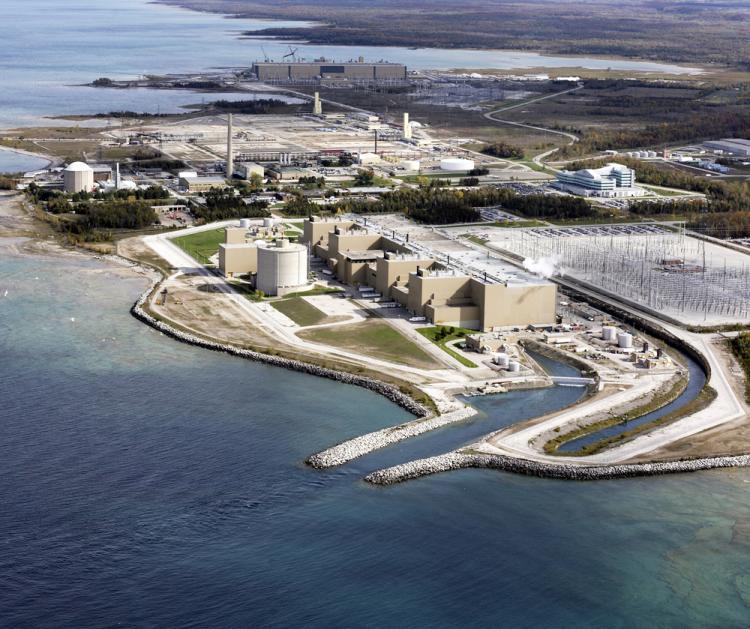An Ontario company’s plan to transport radioactive steam generators to Sweden via the Great Lakes has raised widespread concern from environmentalist groups and local communities on both sides of the border.
A decision is still pending from the Canadian Nuclear Safety Commission (CNSC) on whether to approve nuclear utility Bruce Power’s plan to ship 16 steam generators through the Great Lakes and the St. Lawrence Seaway to a Swedish company for recycling.
The original plan was to make the shipment sometime this fall. A spokesperson with Bruce Power says the safety commission has not said when the decision will be made.
Earlier this month, seven U.S. senators sent a letter to the CNSC and Canadian environment minister Jim Prentice expressing their concern about the proposal and seeking assurance that Canada will conduct a thorough review of the plan.
The letter said the senators have urged the U.S. Pipeline and Hazardous Material Safety Administration to reject the proposal if it doesn’t protect the Great Lakes or comply with U.S. and international standards, and said they “urge Canada to do the same.”
Bruce Power spokesperson John Peevers says the plan to ship the steam generators for recycling is intended to reduce the company’s environmental footprint.
Plan to Ship Radioactive Waste Stirs Concern
An Ontario company’s plan to transport radioactive steam generators via the Great Lakes has raised widespread concern.

Dr. Anne-Marie Brady, Associate Professor of Political Science at the University of Canterbury, New Zealand, is the author of �Marketing Dictatorship: Propaganda and Thought Work in Contemporary China (2008). She testified April 30 before the US-China E Gary Feuerberg/ Epoch Times
|Updated:






